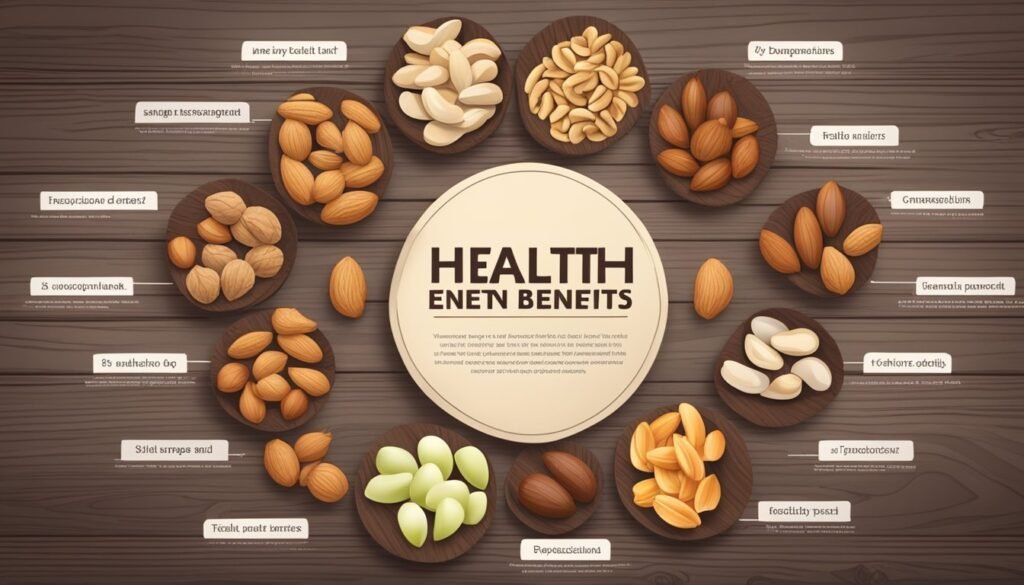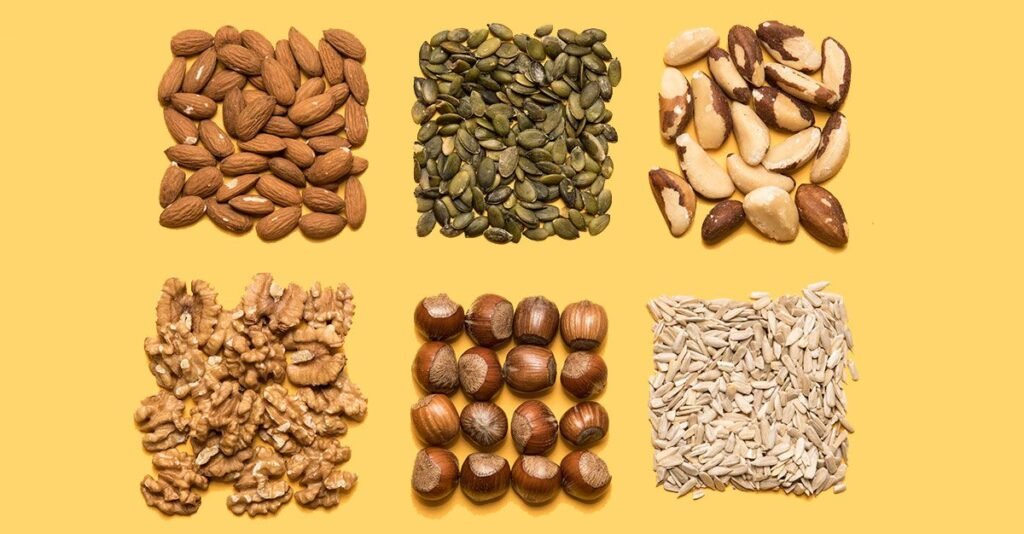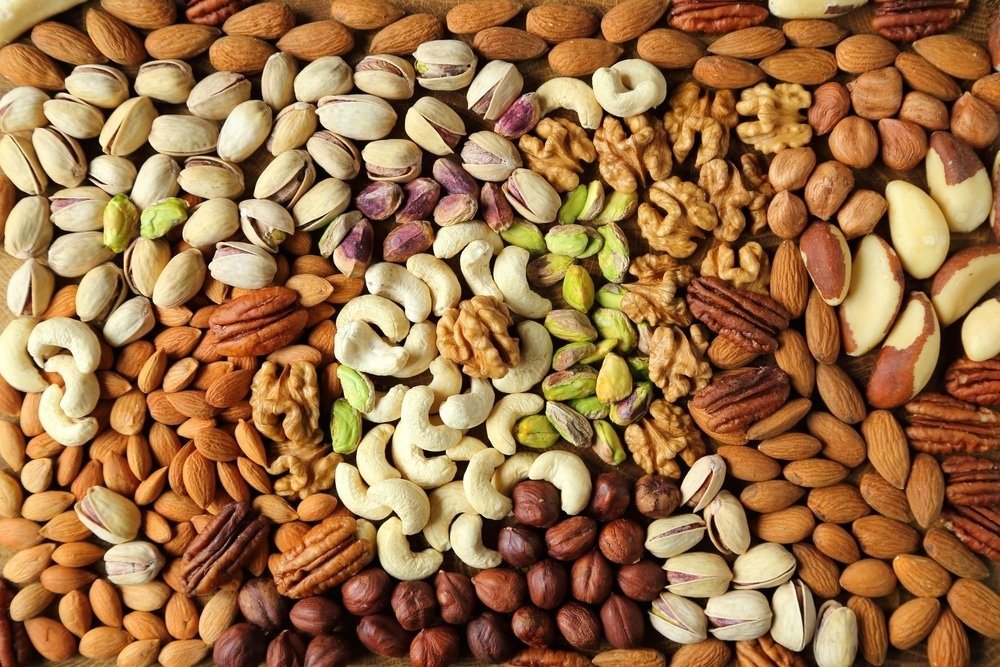Welcome, dear reader, to the intriguing world of nuts and seeds and their potential impact on digestive health. In this article, we will explore the question: “Do nuts and seeds have any unique nutritional properties that support digestive health?” From their fiber content to beneficial fats and essential vitamins and minerals, we will uncover how these small but mighty snacks can play a role in maintaining a healthy gut and overall well-being. So grab a handful of your favorite nuts and seeds, sit back, and let’s dive into the fascinating world of digestive health and these nutritious little powerhouses. Do nuts and seeds have any unique nutritional properties that support digestive health?
Have you ever wondered if snacking on nuts and seeds could actually help your digestive system? Would incorporating these small, crunchy, and flavorful foods into your diet make a difference in how you feel? Let’s dive into the world of nuts and seeds to uncover the unique nutritional properties that may support your digestive health.

This image is property of images.squarespace-cdn.com.
The Importance of Digestive Health
Maintaining a healthy digestive system is crucial for overall well-being. Your digestive tract plays a key role in breaking down food, absorbing nutrients, and eliminating waste from your body. When your digestive system is functioning properly, you may experience fewer digestive issues such as bloating, gas, constipation, and indigestion.
Why is Digestive Health Important?
Your digestive system is often referred to as your “second brain” due to the intricate connection between your gut and your overall health. A healthy gut is essential for proper nutrient absorption, immune function, and even mental well-being. By supporting your digestive health, you can improve your overall quality of life.
The Nutritional Benefits of Nuts
Nuts are nutritional powerhouses packed with a variety of nutrients that are beneficial for your digestive system. Let’s explore the unique properties of nuts that can support your digestive health.
Fiber Content
One of the key nutritional properties of nuts that benefit digestive health is their high fiber content. Fiber is essential for maintaining a healthy digestive system as it helps regulate bowel movements, prevent constipation, and support the growth of beneficial gut bacteria.
| Nut Variety | Fiber Content per 1 oz (28g) |
|---|---|
| Almonds | 3.5 grams |
| Walnuts | 1.9 grams |
| Pistachios | 2.9 grams |
| Cashews | 0.9 grams |
| Brazil Nuts | 2.1 grams |
Healthy Fats
Nuts are also rich in healthy fats, particularly monounsaturated and polyunsaturated fats. These fats are beneficial for digestive health as they can help reduce inflammation in the gut and promote the absorption of fat-soluble vitamins such as vitamin E.
| Nut Variety | Healthy Fat Content per 1 oz (28g) |
|---|---|
| Almonds | 14 grams |
| Walnuts | 18 grams |
| Pistachios | 13 grams |
| Cashews | 13 grams |
| Brazil Nuts | 19 grams |
Antioxidants
Many nuts are also rich in antioxidants such as vitamin E and selenium, which can help protect the cells in your digestive tract from damage caused by free radicals. Antioxidants play a key role in reducing inflammation and supporting overall digestive health.
| Nut Variety | Antioxidant Content per 1 oz (28g) |
|---|---|
| Almonds | 7.3 mg |
| Walnuts | 0.3 mg |
| Pistachios | 7.3 mg |
| Cashews | 0.9 mg |
| Brazil Nuts | 1917 mcg |

This image is property of www.shape.com.
The Nutritional Benefits of Seeds
Similar to nuts, seeds are also nutrient-dense foods that can support digestive health. Seeds are rich in fiber, healthy fats, and antioxidants that are beneficial for maintaining a healthy gut. Let’s explore the unique properties of seeds that may support your digestive system.
Fiber Content
Seeds are excellent sources of dietary fiber, which is essential for promoting regular bowel movements, preventing constipation, and supporting a healthy digestive system. Incorporating a variety of seeds into your diet can help increase your fiber intake and support optimal gut health.
| Seed Variety | Fiber Content per 1 oz (28g) |
|---|---|
| Chia Seeds | 10.6 grams |
| Flaxseeds | 7.6 grams |
| Pumpkin Seeds | 5 grams |
| Sunflower Seeds | 3 grams |
| Sesame Seeds | 4.1 grams |
Healthy Fats
Seeds are also rich in healthy fats, particularly omega-3 fatty acids found in chia seeds and flaxseeds. Omega-3 fatty acids are known for their anti-inflammatory properties and can help reduce inflammation in the gut, promoting overall digestive health.
| Seed Variety | Healthy Fat Content per 1 oz (28g) |
|---|---|
| Chia Seeds | 9 grams |
| Flaxseeds | 12 grams |
| Pumpkin Seeds | 13 grams |
| Sunflower Seeds | 14 grams |
| Sesame Seeds | 13 grams |
Antioxidants
Seeds are also excellent sources of antioxidants such as vitamin E, selenium, and lignans found in flaxseeds. These antioxidants help protect the cells in your digestive tract from damage, reduce inflammation, and support optimal gut health.
| Seed Variety | Antioxidant Content per 1 oz (28g) |
|---|---|
| Chia Seeds | 3.5 mg |
| Flaxseeds | 0.8 mg |
| Pumpkin Seeds | 0.3 mg |
| Sunflower Seeds | 0.9 mg |
| Sesame Seeds | 2.5 mg |

This image is property of s3.images-iherb.com.
How to Incorporate Nuts and Seeds Into Your Diet
Now that you understand the unique nutritional properties of nuts and seeds that support digestive health, you may be wondering how to incorporate these nutrient-dense foods into your daily diet. Here are some simple and delicious ways to add nuts and seeds to your meals and snacks:
Sprinkle seeds on top of salads
Add a crunchy and nutritious boost to your salads by sprinkling a handful of seeds such as chia seeds, pumpkin seeds, or sunflower seeds on top. Not only will you add texture and flavor to your salad, but you’ll also increase your fiber and antioxidant intake.
Make nut butter
Blend your favorite nuts such as almonds, walnuts, or cashews in a food processor until smooth to create delicious nut butter. Use nut butter as a spread on toast, in smoothies, or as a dip for fruit and vegetables. Nut butter is a versatile and nutritious way to enjoy the benefits of nuts.
Include nuts in your oatmeal
Enhance the nutritional content of your morning oatmeal by adding a handful of nuts such as almonds, walnuts, or pistachios. Nuts add a satisfying crunch and a boost of fiber, healthy fats, and antioxidants to your breakfast, supporting your digestive health throughout the day.
Mix seeds into yogurt
Stir a variety of seeds such as chia seeds, flaxseeds, or sesame seeds into your favorite yogurt to create a nutrient-packed snack or breakfast. Seeds add a crunchy texture and a dose of fiber, healthy fats, and antioxidants to your meal, keeping your digestive system happy and healthy.

This image is property of cdn.shopify.com.
The Role of Probiotics in Digestive Health
In addition to incorporating nuts and seeds into your diet, another important aspect of supporting digestive health is consuming probiotics. Probiotics are beneficial bacteria that promote a healthy balance of gut microbiota, supporting proper digestion and nutrient absorption. Let’s explore the role of probiotics in digestive health and how you can incorporate them into your daily routine.
What Are Probiotics?
Probiotics are live bacteria and yeasts that are beneficial for your digestive system. These microorganisms promote a healthy balance of gut bacteria, improve digestion, boost immunity, and may even support mental health. Consuming probiotics can help maintain a healthy gut microbiome and improve overall digestive health.
Sources of Probiotics
Probiotics can be found in fermented foods such as yogurt, kefir, sauerkraut, kimchi, tempeh, and miso. These foods contain live and active cultures of beneficial bacteria that can populate your gut and support your digestive system.
| Probiotic Food | Probiotic Strains |
|---|---|
| Yogurt | Lactobacillus bulgaricus, Streptococcus thermophilus, Bifidobacterium lactis |
| Kefir | Lactobacillus acidophilus, Lactobacillus plantarum, Lactobacillus casei, Bifidobacterium longum |
| Sauerkraut | Lactobacillus plantarum, Leuconostoc mesenteroides |
| Kimchi | Lactobacillus brevis, Lactobacillus plantarum, Leuconostoc mesenteroides |
| Tempeh | Rhizopus oligosporus, Bifidobacterium bifidum |
| Miso | Aspergillus oryzae, Lactobacillus plantarum |
Probiotic Supplements
If you’re unable to consume enough probiotic-rich foods in your diet, you may consider taking a probiotic supplement to support your digestive health. Probiotic supplements come in various strains and concentrations, so it’s important to choose a high-quality supplement that meets your specific needs.
Prebiotics and Probiotics
Prebiotics are non-digestible fibers that feed the good bacteria in your gut, helping them thrive and multiply. Consuming a combination of prebiotics and probiotics can promote a healthy balance of gut microbiota, improve digestion, and support overall digestive health.

This image is property of d2jx2rerrg6sh3.cloudfront.net.
Conclusion
Incorporating nuts and seeds into your diet can provide a variety of unique nutritional properties that support digestive health. From their high fiber content to their healthy fats and antioxidants, nuts and seeds offer a wide range of benefits for your gut. By adding these nutrient-dense foods to your meals and snacks, you can enhance your digestive health and improve your overall well-being. Don’t forget to also consider the role of probiotics in supporting a healthy gut microbiome and optimizing your digestive system. Whether you sprinkle seeds on your salad, mix nuts into your oatmeal, or enjoy a probiotic-rich yogurt, taking small steps to support your digestive health can have a significant impact on how you feel. So go ahead, grab a handful of nuts and seeds, and nourish your gut for a healthier you.
